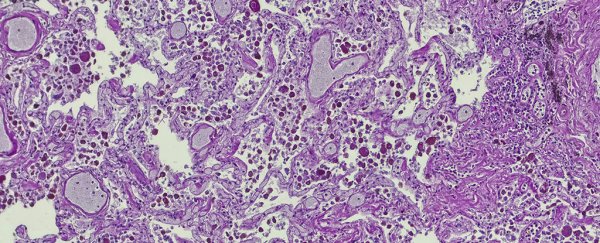A detailed analysis of scientific research has revealed that nearly 9 in 10 human genes have been mentioned in at least one cancer-related study – and those that haven't probably will be in the years to come.
That makes looking for therapeutic targets very difficult for experts: Research into almost any human gene and its relationship to cancer can be justified based on previous studies, which can slow down the search for genuine genetic causes of the disease, as well as genetic causes involved in other health issues.
The findings are based on results returned by the PubMed search engine, which covers tens of millions of articles on life sciences and biomedical topics, some of them stretching all the way back to the 1950s.
"Cancer is the most widely studied topic in biological and biomedical sciences," writes microbiologist João Pedro de Magalhães, from the University of Liverpool in the UK, who carried out the research.
"However, the huge amount of data gathered concerning cancer means that there is much more information concerning genes associated with cancer than for any other disease or process."
Right now, around 4 million of the more than 30 million publications in the PubMed database mention cancer. Compare that to around 350,000 that mention strokes, and you get an idea of the sheer volume of research on the topic.
While having this huge body of cancer research is of course helpful in working towards treatments, cures, and a better understanding of the disease, it can make large-scale, systematic analysis more difficult when it comes to genetic links.
In other words, a clear picture of which genes cause cancer can get lost within the sea of genes that are merely linked to the disease in other ways.
These papers don't necessarily point to a causal association between particular genes and cancer, but they do mean that the majority of human genes have been studied in a cancer context. That can lead to biases when researchers decide what to study next.
"The study of nearly any human gene can be justified based on existing literature by its potential relevance to cancer," writes de Magalhães.
"Understanding the reasons for biases in large-scale analyses and correcting for them is of growing importance to increase the value of insights and predictions."
With cancer now thought to affect roughly one in two of us during our lives, there's no sign of research into the disease slowing down – and indeed previous studies have noted how growth in the volume of cancer research is outpacing everything else at the moment.
After all, cancer is relatively 'easy' to study, given the number of data and laboratory resources like established cell lines that are available. It is also a topic that attracts a lot of funding, although this funding is by no means distributed equally amongst all types of cancer.
According to de Magalhães, if a human gene hasn't yet been linked with cancer, it's probably because it hasn't been studied enough – it's only a matter of time before it joins the list.
There's no doubt that studies linking genes and cancer are vital in tackling the disease, but this latest report warns that researchers should be aware of potential biases in terms of connecting every part of our genetic make-up with cancer.
"In a scientific world where everything and every gene can be associated with cancer, the challenge is determining which are the key drivers of cancer and more promising therapeutic targets," concludes de Magalhães.
The research has been published in Trends in Genetics.
